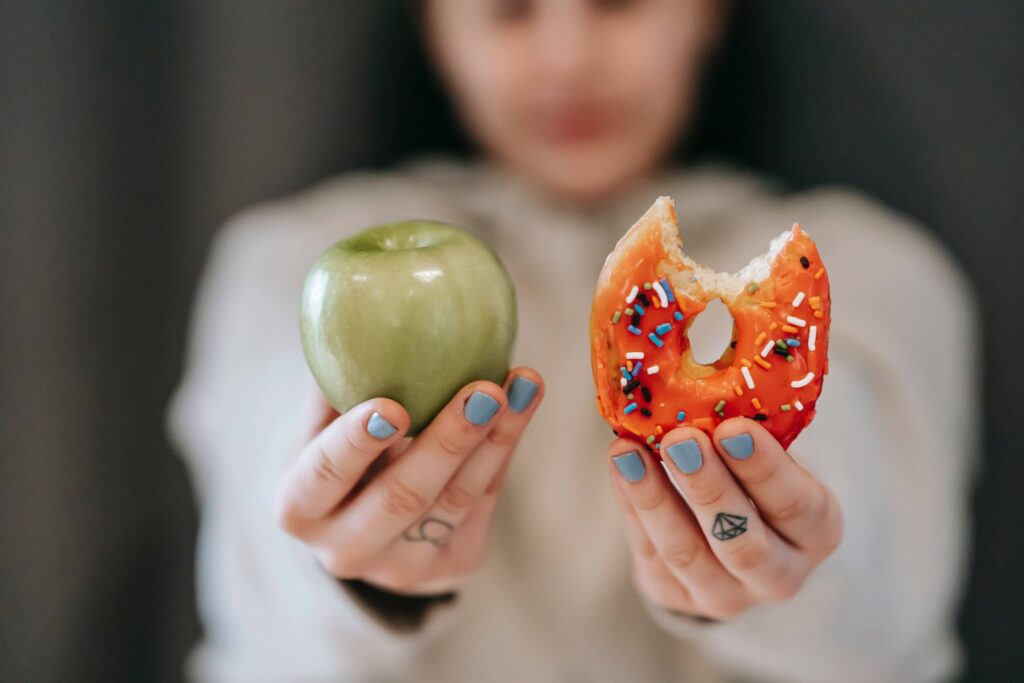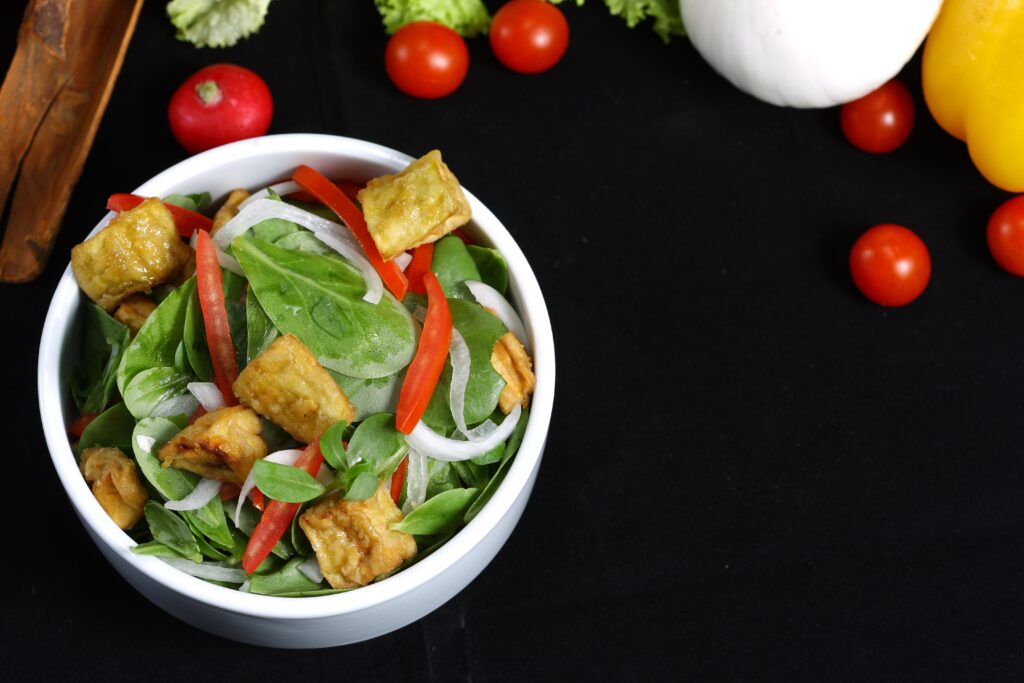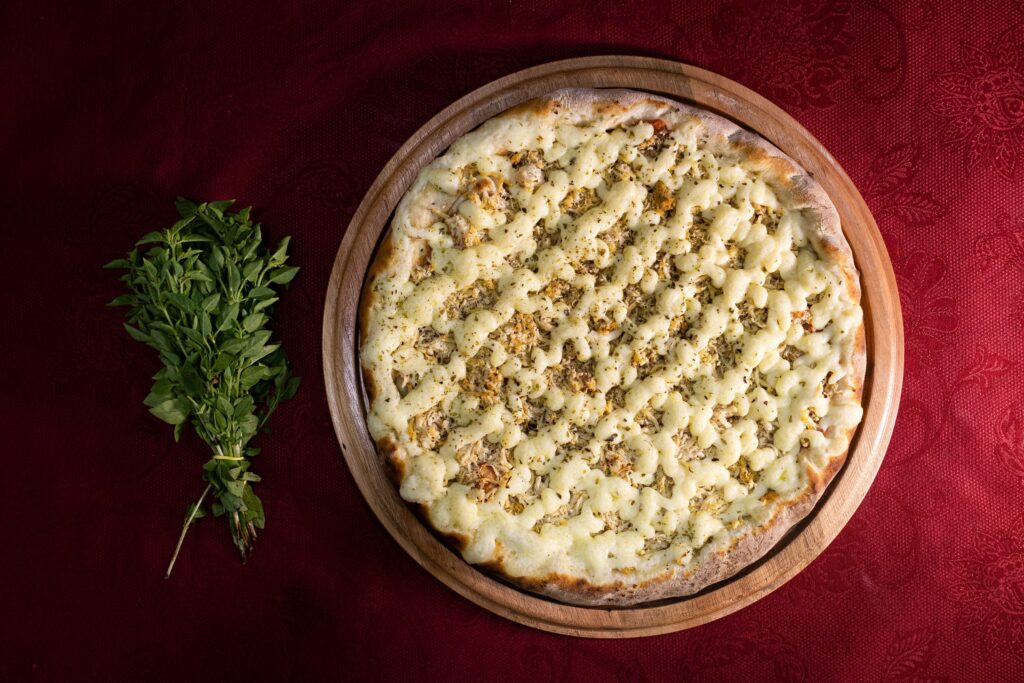When was the last time you ate something you weren’t “supposed” to? Were you able to shrug it off and get on with your day or did you beat yourself up about it? Maybe you even proceeded to “make up for it” by performing penitential crunches at the gym, avoiding an entire food group for a week or, at the very least, fat-shaming yourself till the stress of it all made you give in to more indulgent foods, starting a whole new cycle of self-loathing.
If that sounds familiar, you’re probably suffering from food guilt—the ugly lovechild of diet culture and ludicrous beauty standards. But how do you fight a feeling you’ve been conditioned to feel? Let’s examine this psychological epidemic that infests our society more closely for clues on where to begin and what to do about it.

Highlights
- Guilt is the feeling that you’ve done something wrong, while shame is the sense that you are wrong,
- We’ve bought into the myth that if we eat the “right” foods in the “right” amounts, we will achieve the ideal body shape,
- The problem with categorising food as good or bad is that we’re really categorising ourselves as good or bad.
What is food guilt?
Let’s first understand what guilt is and how it’s different from its first cousin, shame. According to psychologist and eating disorder specialist Judi-Lee Webb, guilt and shame are related but not identical. Guilt is the feeling that you’ve done something wrong, such as breaking a food rule you set for yourself, while shame is the sense that you are wrong for such things as not being able to live up to expectations around body weight or shape.
Food guilt is the guilt that stems from the idea that some foods are good and others are bad. Vegetables typically fall in the “good” category and foods high in fat or sugar are generally classified as “bad.” Depending on whatever food group a particular fad diet decides to villainise, there can be a very long list of foods that can trigger feelings of guilt and shame if you happen to consume them.
This kind of diet culture takes healthy eating to a destructive extreme because you find that the more you deprive yourself of foods you really want to eat, the more you lose control around them under stress—for instance, going three whole weeks off sugar and then devouring half a jar of Nutella because a work project you worked on for months got cancelled, your partner left you on “read,” your best friend had to cancel plans last minute and you just couldn’t take it anymore.
Needless to say, this tends to have a domino effect on your mental health and emotional well-being that goes on to affect the body. Since we’re not born feeling guilty (especially about what or how much we eat), this is something we’ve learned from the pervasive and often misinformed messaging around “eating right.” The good news is that what is learned can be unlearned.

Why do people experience food guilt?
Underneath the cycle of guilt and shame is the blatant lie, we’ve unconsciously subscribed to that if we push ourselves hard enough to “eat right” and double our efforts at the gym, we can get our bodies to morph into whatever shape and size we consider ideal. As Glenys Oyston, a Los Angeles-based dietitian, sums it up, “As a culture, we’ve fully bought into this myth that if we eat the ‘right’ foods in the ‘right’ amounts, we will achieve the ideal body shape. We’re sure it’s just a matter of trying hard enough.”
This, of course, implies that giving into the occasional “bad” food means that we are weak-willed. This can make people drive themselves to a perfectionist extreme and, in some cases, even to the point of developing an eating disorder. At the very least, it can make us succumb to feelings of unworthiness and shame for being “too weak.”
The problem with categorising food as good or bad is that we’re really categorising ourselves as good or bad. While for many people, this need for categorisation may come from a genuine need to get healthy and nourish the body, and there is nothing sustainably healthy about relating to food in this way because it deprives us of all the joy and comfort around eating.
How to stop feeling guilty about food?
Now that we’re all on the same page about why food guilt is harmful to our overall health and well-being let’s look at some things we can do to tackle the problem.
Eat intuitively
One of the pitfalls of a hyper-connected digital world is that we’re constantly bombarded with information about healthy eating (much of it being either wrong, contradictory or both). As a result, we rely excessively on our heads to tell us what, when and how much we’re supposed to eat and forget to listen to the body, which may be telling us something entirely different.
However, it is possible to learn to eat intuitively. Instead of furiously tracking calories or agonizing over good or bad foods, check in with your body. What do you really feel like eating right now? How do you feel after eating a particular food? Would you like to feel like this again?
Sometimes this could mean having a second lunch, skipping breakfast or indulging in dessert. As Marci Evans, a dietitian in Cambridge, Massachusetts, puts it, “Reliably eating until you feel satiated teaches your brain and body to trust each other, which will help you feel more relaxed and in charge of your eating.”
Let go of food rules
The more you tell yourself you’re not allowed to eat something, the more you’re going to find yourself craving it. It’s just human nature. When we consider a particular food forbidden, we start to idealise it. When we finally have the opportunity to eat it (maybe because it’s sitting right in front of us at a dinner party or because we’re having a “weak” moment), we have little to no self-control and end up indulging in it a lot more than we would have had we allowed ourselves to have some in the first place.
Understand that food guilt has no place in a balanced diet
Food isn’t just fuel for the body. It also plays a significant role in our social lives, so preparing and eating food should be a pleasurable experience. While we are repeatedly told that a balanced diet is the key to good health, there is one essential thing that diet culture tends to leave out: a balanced diet includes all food groups, including your favourite desserts and treats.

Replace judgement and negative self-talk with compassionate curiosity
The next time you find yourself going on a shame spiral, pause and ask yourself if you would speak this way to a child or a good friend. Whether you had an episode of binge-eating or ate dessert till it made you sick, instead of dissolving into a puddle of guilt under the weight of your judgement, take a minute to pause and reflect.
What triggered this episode? What were you doing before this happened? How were you feeling? What could you do differently the next time these feelings arise? This way, you can turn your attention to doing better in the future instead of dwelling on the past.
Talk to a professional
While there are plenty of approaches you can take to rewire your brain on its notions about food and address your negative self-talk, sometimes the guilt and shame triggered by food may be a sign that you might develop an eating disorder. Professional help is necessary if your preoccupation with food gets in the way of your daily activities, if you use vomiting, laxatives or other methods to lose weight, or if you have other physical symptoms related to not eating enough.
Conclusion
Food guilt stems from the notion that some foods are inherently bad and that eating them makes you a bad or weak-willed person. Since this is a fairly pervasive idea, it affects us all—albeit in varying degrees—and if we’re not watchful, it can affect our overall health and emotional well-being. Much of our guilt around food is also driven by the belief that if we try hard enough, we can turn our bodies into the shape and size we’re told is ideal.
Needless to say, this deeply affects our sense of self-worth when we find that we’re unable to meet our expectations of the body. Some ways we can tackle this psychological epidemic include letting go of “food rules,” eating mindfully and intuitively, focusing on a balanced diet rather than one that centres on deprivation, watching our negative self-talk and connecting with a professional should our obsession with food interfere with our ability to function.
Disclaimer: The contents of this article are for general information and educational purposes only. It neither provides any medical advice nor intends to substitute professional medical opinion on the treatment, diagnosis, prevention or alleviation of any disease, disorder or disability. Always consult with your doctor or qualified healthcare professional about your health condition and/or concerns and before undertaking a new health care regimen including making any dietary or lifestyle changes.
References








